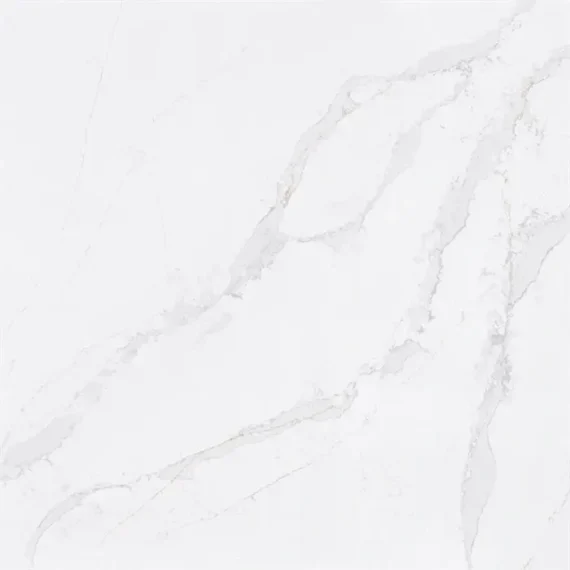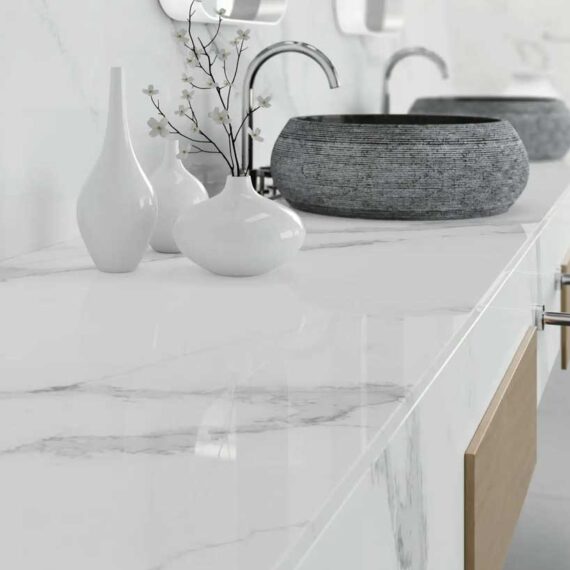Quartz is a non-porous, maintenance-free material available in a wide range of colours
Quartz stone, or engineered quartz, is an industrial composite material. Although referred to as an artificial stone, quartz stone actually contains approximately 90% natural stone. Only a small amount of binders and dyes are added to enhance its appearance and optimise its composition.
The quartz stone used to make the worktop is first cut to the right size, and then the edges and surface of the resulting stone slab are processed.
Quartz worktops are becoming an increasingly popular choice in modern homes, offering both beauty and practicality due to their resistance to scratches, moisture, and high temperatures. Quartz surfaces enhance kitchen and bathroom designs due to their easy maintenance and long-term durability, making them ideal for busy kitchens where cooking and other activities are frequent. Quartz countertops are easy to care for and can last a very long time with proper upkeep.
How to clean a quartz worktop?
A microfiber cloth moistened with warm water is best for daily cleaning. For more stubborn dirt, we recommend using a neutral, slightly alkaline (pH 8–10) or slightly acidic (pH 4–6) detergent.
The longest service life is achieved by using cleaning products specifically formulated for quartz stone surfaces. Cleaning agents that contain bleaching agents, have an abrasive effect or are highly acidic should be avoided, as they can permanently damage the surface.

What to do in case of stains?
The best way to deal with stains is to prevent them in the first place. Keep your quartz countertop from exposure to chemicals and corrosive substances.
Dirt and stains on the surface are best removed immediately with household paper, water and detergent to avoid permanent damage. For stronger stains, use a special quartz surface cleaner. After that, wash the surface with water and detergent. You can buy a suitable cleaning agent from us or, depending on your country, from a local store.
How to avoid heat damage and scratches?
A drawback of quartz stone is its low heat resistance. Therefore, hot dishes and objects should not be placed on a quartz worktop. Using heat mats protects surfaces from heat damage. Quartz tolerates scratches better, but we recommend using cutting boards to prevent them.
Does a quartz worktop need regular maintenance?
There is no need to apply sealants to a polished quartz countertop as it is inherently water-resistant. In regular use, the same applies to quartz countertops with other types of surface treatments.
Find out how to maintain a ceramic worktop, a marble worktop, or a granite worktop.

